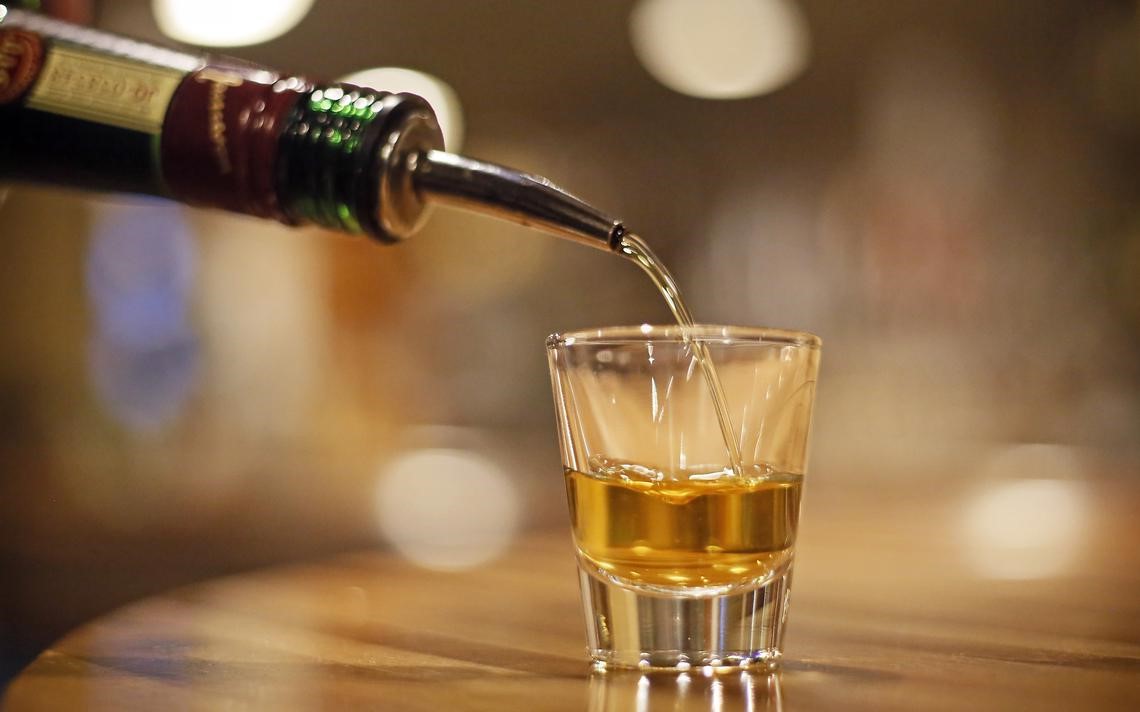Alcohol sales at casinos proposed
PINE RIDGE— On March 10, voters on the Pine Ridge Reservation will have the chance to support or oppose a referendum to allow alcohol sales limited to casino operations on the reservation. Pine Ridge is presently a “dry” reservation, and past efforts to legalize alcohol sales have failed at the ballot box.
Last May, the Spirit Lake Tribe in North Dakota 65 percent of tribal voters finally approved alcohol sales at tribal casino operations after many years of voting it down. This change can be attributed to looking all around their borders, especially over in Minnesota, and seeing how casino profits have changed the economic reality of several reservations.
Alcoholism on Pine Ridge, and on every reservation in the United States, can arguably be deemed the single biggest threat any tribe faces to their health and well-being. Over eighty percent of Pine Ridge residents have abused alcohol, although the number of actual alcoholics is only about a quarter of that.
Every reservation economy is trapped between two cultures. These cultural standards are often diametric perceptions of what is right and proper when it comes to establishing the foundations of a sound reservation economy, an economy that will provide jobs, security, and rebuild and maintain tribal infrastructure. Many traditional people don’t want the tribe tearing up the land to mine resources or chop down timber, and this same activist mindset opposes business development that appears to prey on the vulnerability of tribal members, such as alcohol sales.
Traditional concerns about the cultural and spiritual welfare of the people are not radical concepts. They speak to every tribe from the ancestral heart of who the people are, and where they have come from, and where the tribe is headed. Any tribal gaming or business operation must filter their objectives in a respectful way through those traditional tribal concerns and fears.
But on the other hand, the purpose of any casino operation is to take full economic advantage of the trust relationship with the federal government that allows tribes to operate independent of state interference and restriction. In an 1866 United States Supreme Court ruling the justices remarked that the greatest enemy any tribe has is the state in which they reside. Tribal sovereignty gives every tribe a leg up on outside state competition for recreation dollars.
Casino profits have helped transform the lives of tribes who were struggling economically, most notably the Shakopee Mdewakanton Band in Minnesota, and the Chickasaw Tribe in Oklahoma. Tribal gaming operations nationwide generate profits in the billions, far in excess of the entire Bureau of Indian Affairs budget for any given year.
The Winnebago of eastern Nebraska, built Hochunk Incorporated, a $200 million a year company, from a start-up of $9 million from casino profits. Twice, their CEO, tribal member Lance Morgan, has come to Pine Ridge, intent on assisting the Oglala in establishing their own profitable company, and assuring them that they have resources similar to what the Hochunk had a quarter century back when they started up Hochunk Inc.
But casino revenue on the Pine Ridge reservation has not come close to matching Winnebago success. Much of that can be attributed to failure of tribal leadership to approve, develop or implement viable economic operations. But part of the problem has been competition from Deadwood and the location of tribal casinos. The locations that were chosen, on the east and west borders of the reservation, can be justified by feasibility study, but given they are not in close proximity to a metro area, like the Hochunk casinos are, the tribe must compel people to drive to these casinos rather than drive up to Deadwood.
Tribal casinos were never intended for tribal use. Had tribal members been the intended patrons the operations would have never been funded or realized in the first place. They would generate little, if any, profit. The dollars every tribe seeks are from people outside the reservation, who have the discretionary income, and the inclination, to frequent casinos.
At present most of the people coming to Pine Ridge casinos are tribal members. The tribe has failed to lure in enough outside patrons. Bill Pourier, Director of Operations at Prairie Wind Casino, believes tribal revenue from casino operations would double if alcohol sales were allowed at casino operations. Feasibility studies back him up. It is hoped this would increase profits by attracting people from outside the reservation, which would help establish expansions, more money for musical acts, comedians, sporting events.
The misperception by many tribal members is that the casino is operated for the tribe’s pleasure. It is not. It is there to entice non-Lakota into seeing the casino as an entertainment and recreation destination. These are the dollars every tribal gambling operation seeks.
Across this nation, there are dry and wet counties within reservation boundaries. But the level of alcoholism in South Dakota reservation counties remains similar, regardless of being wet or dry. No argument, based upon that statistical reality, can be made that alcohol sales can make the alcoholism tragedy worse.
Those that would oppose limited alcohol sales, do so out of genuine concern for the impact this would have on their community, on their loved ones, and those that propose limited alcohol sales, propose them for exactly the same reason. In one case, the impact is feared to be negative, pouring kerosene on an already raging alcoholism fire, and in the other case, it is considered positive, generating monies to pay for tribal programs and services, including substance abuse rehab.
Historically, the Tribe has tended to vote against change. They have good reason to hold change suspect, given how tribes have been treated by the government. Proponents of limited alcohol sales hope that that historic pattern will change, and that the Tribe will look at the issue sensibly and logically, and not emotionally.
(Contact James Davies at skindiesel@msn.com)

